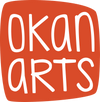By Patricia Belyea
GIG HARBOR WA There’s no doubt that Dr. David Paly loves textiles. Not mass-produced, department store goods but masterfully crafted textiles that span back in time and across the world.

Last weekend I visited David in Gig Harbor at the gateway to the Olympic Peninsula of Washington state. Although the wooded surroundings were enchanting, it was inside David’s waterfront home that set my heart aglow.
Just steps from the front door, David’s personal gallery displayed over half a dozen textile objects. The seasonal selection—kimono, hangings, and more—showcased just a few of the pieces from his huge collection.

His teen years took him further down the rabbit hole of collecting with an apprenticeship to an auctioneer, a job as a “gofer” in the Child’s Gallery in Boston, and a year of independent study at the Mead Art Museum at Amherst College.
Although David chose to study medicine and schooled in anesthesiology, he held a desire to create an important collection.

As a young man, David began traveling around the world. In South America he encountered ikat and bought an indigo cotton poncho. Later he acquired a ceremonial cloth (pua) from a tribe in northwest Borneo.
As David wrote “The disease of a collector is such that if you have two of anything you need to complete the set. Forty-five years later I am near enough to that goal to want to present what I have accumulated.”
To this end, the current IKAT exhibit at Seattle Art Museum shows about 100 pieces from his extensive textile collection—all ikat-woven marvels from around the globe.

In a corner of his living room hung an indigo futon cover. Decorated with a shishi mythical lion and oversized peonies using the Japanese tsutsugaki technique, it is one of the many futon covers in David’s collection.

In the gallery hung two kimono:
The first, a child’s cotton kimono, represented one of his many kimono for little ones. Along the bottom hem was dye-painted a peaceful riverfront town.

The second looked like an oversized ikat kimono. And it was! Originally a yogi (a sleeping kimono) which was once stuffed with cotton like a quilt, the kimono was stripped down to just its outer robe.

Rummaging through a set of packed drawers, David pulled out a shima-cho — a Japanese sample book from the late 1800s filled with small pieces of striped kasuri cotton.


Folded up on a footstool was an ethereal hemp furoshiki (wrapping cloth) from Okinawa that David held up for me. The bold arabesques and stylized peonies spoke sublimely on the sheer fabric dyed with various shades of indigo.

On the wall was an indigo noren (door curtain) with a paulownia family crest, and an uguisu (Japanese nightingale)—a harbinger of Spring and the protagonist in a famous Japanese tale about the emperor wrongly choosing between a mechanical nightingale and a real one.


There were textiles from other cultures to examine and discuss but I only had eyes for the Japanese objects.
In my short visit, I learned about David’s greatest discovery in his search for ethnographic textiles. In 1988, at the Artweave Gallery in New York that presented non-Western and ancient cloth, he chanced to meet Marita Shimokawa Makabe. Four years later, David and Marita married in the Gallery.
So it is a love story on top of a love story — textiles and people — two things that always go together!

David saw me off at the end of my visit. Walking to my car, we finished up our chat.
David admitted that he’s ready to release his precious accumulations to new homes where they can be preserved and displayed. Where scholars and amateurs alike can examine and learn from his textile treasures.
Another great act of love.
 ABOUT US: Okan Arts, a petite family business, is co-owned by mother-daughter duo Patricia Belyea and Victoria Stone. Patricia and Victoria sell Japanese textiles online, host creative quilting experiences, and lead quilting & textile tours to Japan.
ABOUT US: Okan Arts, a petite family business, is co-owned by mother-daughter duo Patricia Belyea and Victoria Stone. Patricia and Victoria sell Japanese textiles online, host creative quilting experiences, and lead quilting & textile tours to Japan.
FOLLOW OKAN ARTS ON INSTAGRAM @okanarts






